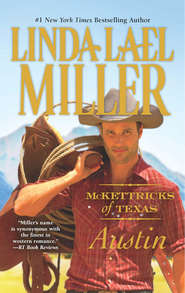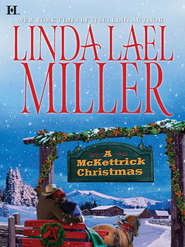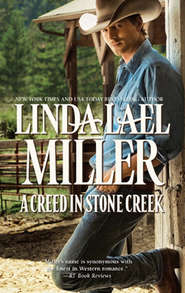По всем вопросам обращайтесь на: info@litportal.ru
(©) 2003-2025.
✖
The Rustler
Автор
Год написания книги
2019
Настройки чтения
Размер шрифта
Высота строк
Поля
At the time, Wyatt had regarded that letter as a fluke of the postal system.
Now, he figured Rowdy must have figured he’d wind up in the Arizona Territory eventually, maybe looking for Pappy, and wished he’d never set foot in the post office in Tucson. Or, better yet, thrown in with the likes of Billy Justice before Rowdy offered him a fresh start.
“I can’t stay, Rowdy,” he said.
“You’ll stay,” Rowdy said.
“What makes you so damn sure?”
“That old nag of yours is practically dead on his feet. He doesn’t have another long ride in him.”
“He made it here, didn’t he?”
Rowdy didn’t seem to be listening. “I’ve got a spare gelding out there in the barn. You can ride him if you see the need. Name’s Sugarfoot, and he’ll throw you if you try to mount up on the right side.”
“When it comes to riding out, one horse is as good as another,” Wyatt said, but he was thinking of old Reb, the paint gelding, and how sorry he’d be to leave him behind. They’d been partners since that turn of the cards in Abilene, after all, and Wyatt would have been in a fine fix without him.
“You’re a lot of things, Wyatt,” Rowdy reasoned, “but a horse thief isn’t among them. Especially when the horse in question belongs to me.”
Wyatt scowled, said nothing. He was fresh out of arguments, at the moment. Hadn’t kept up on his arguing skills, the way Rowdy had.
Rowdy saw his advantage and pressed it. “And then there’s Sarah Tamlin,” he said.
“What about Sarah Tamlin?” Lark asked, appearing in the bedroom doorway with a fat satchel in one hand.
Wyatt glared at Rowdy.
Rowdy merely grinned.
“She smokes cigars,” Wyatt said lamely. “You told me that yourself, just yesterday. Plays poker, too. Gives a man second thoughts.”
“She does not smoke cigars,” Lark insisted.
“So it’s true about the poker!” Rowdy said, in an ah-ha tone of voice.
“I wouldn’t know,” Lark said, with an indignant sniff.
“I heard she was a member of the Tuesday Afternoon Ladies Only Secret Poker Society,” Gideon said, looking smug. “And she’s not the only one. It might surprise you who goes to those meetings.”
Rowdy chuckled.
“Gideon,” Lark warned.
He turned back to the sink, flushed, and scrubbed industriously at the kettle Lark had used to boil up the morning’s oatmeal.
“It’s just a rumor,” Lark told Rowdy. “Respectable women do not play poker. Or smoke cigars.”
“Whatever you say, dear,” Rowdy replied sweetly.
Wyatt just shook his head, confounded.
“Come on,” Rowdy said to him, beckoning. “I’ll show you around town. Sam can swear you in when he gets here. What I do is, I count the horses in front of the saloons. If there’re more than a dozen, I keep a closer eye on the place—”
Wyatt followed, since that seemed like the only thing to do.
* * *
“THERE,” SAID SARAH, straightening her father’s tie outside the door of his office at the bank, grateful that the place was empty at the moment. Thomas, the only teller, had gone out when they arrived. The train would be pulling in at the new depot within an hour, pausing only long enough to swap mailbags with the postmaster and take on any passengers who might be waiting on the platform—or drop off new arrivals.
It was Thomas’s job, at least in part, to rush back to the bank and report to Sarah if any important visitors showed up. She was always on the lookout for unexpected stockholders.
“I’ll handle things, Papa,” Sarah assured her father, who had turned fretful again after breakfast. She was fairly certain he hadn’t seen her stuff his army uniform behind the wooden barrel of the washing machine on the back porch, but she wasn’t absolutely sure. “If someone comes in to open an account or inquire about a loan, let me do the talking. I’ll say you’re busy. All you have to do is sit at your desk, with your papers—if they insist on greeting you personally, I’ll be careful to call them by name so you know what to—”
“Sarah.” Ephriam looked pained.
“Papa, you know you forget.”
Just then, the street door opened with a crash, and Thomas burst in. Plump, with a constellation of smallpox scars spilling down one side of his face, he seemed on the verge of panic.
“Sarah!” he gasped, from the threshold, one fleshy hand pressed to his chest. “It’s him—the man in the photograph you showed me—”
Sarah’s knees turned to water. “No,” she said, leaning against her father for a moment. “He couldn’t possibly have—”
“It’s him,” Thomas repeated.
“Calm down,” Sarah said hastily. “Remember your asthma.”
Thomas struggled to a wooden chair, in front of the window, and sat there sucking in air like a trout on a creek bank. “S-Sarah, wh-what are we going to d-do—?”
“What,” Ephriam interjected, suddenly forceful, “is happening?”
Even in her agitation, Sarah felt a stab of sorrow, because she knew her father wouldn’t be his old self for more than a few minutes. When the inevitable fog rolled in, shrouding his mind again, she’d miss him more keenly than ever.
“You’re going to take Papa home,” she told Thomas, who had begun a moderate recovery—of sorts. He wasn’t sweating quite as much as he had been when he rushed in, and his breathing had slowed to a slight rasp. “Go out the back way, and stay off Main Street.”
Gamely, Thomas got to his feet again. Lumbered toward them.
When he took Ephriam’s arm, though, the old man pulled free. “Unhand me,” he said. “This is an outrage!”
Sarah’s mind was racing wildly through a series of possibilities, all of which were disastrous, but she’d had a lot of experience dealing with imminent disaster, and she rose to the occasion.
“Papa,” she said, “poor Thomas is feeling very ill. It’s his asthma, you know. If you don’t get him to Doc Venable, quickly, he could—” she paused, laid a hand to her bosom, fingers splayed, and widened her eyes “—perish!”
“Great Scot,” Ephriam boomed, taking Thomas by one arm and dragging him toward the front door, and the busy street outside, “the man needs medical attention! There’s not a moment to spare!”
Thomas cast a pitiable glance back at Sarah.
She closed her eyes, offered a hopeless prayer that Charles Elliott Langstreet the Third would get lost between the depot and the bank, and waited for the Apocalypse.











